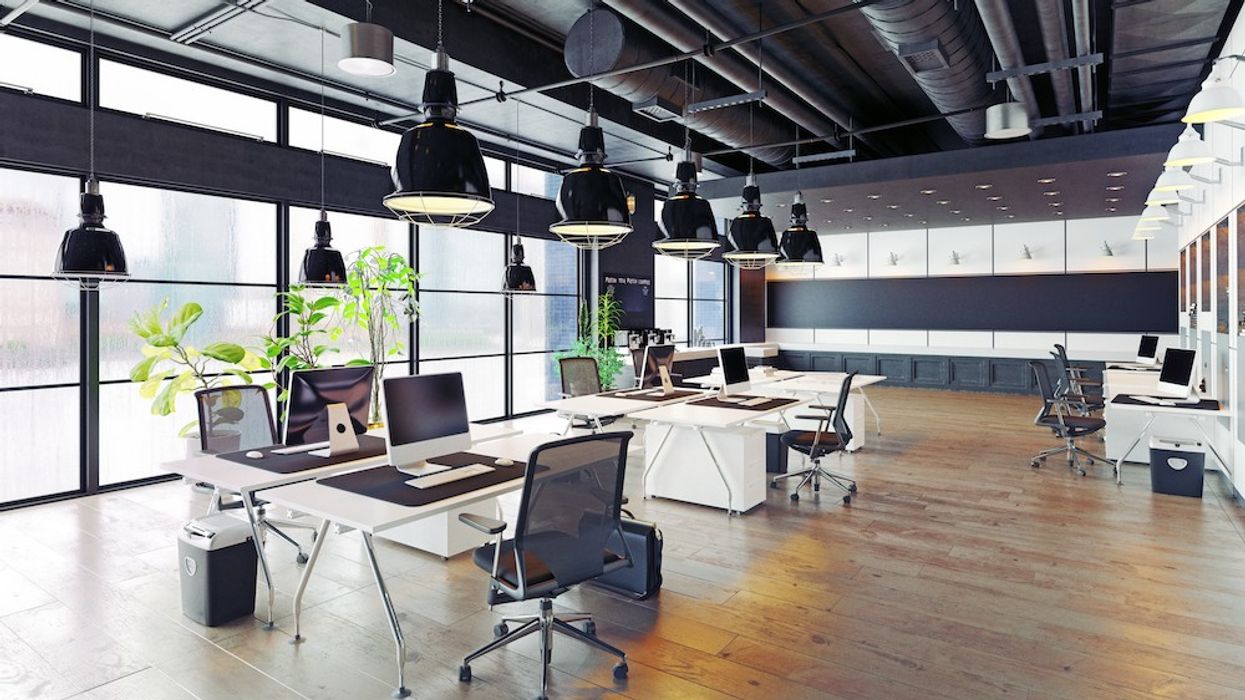At the height of the pandemic, strolling through Toronto’s Financial District made for an eerie experience; taking in the silent intersections and shuttered businesses of the underground PATH hit home just how much COVID had impacted the workforce, and our lives.
However, while work-from-home mandates led to an initial hollowing out of downtown cores and ended daily commutes for many, today, the office isn’t obsolete -- far from it. Instead, the last two years have spurred an evolution in the concept of the workplace, says John Duda, President of Real Estate Management Services Canada at Colliers.
“The office is not dead, not by a long shot,” he tells STOREYS. “I think that’s going to remain true going forward, but how it gets used is going to be a little bit different.”
Recent polling research compiled by Colliers has found organizations seem to be stabilizing in their “return to office” approach, whether that be fully in-person, remote, or a combination of the two. Office tenants are now less likely to reduce the size of their space, with only 24% of those surveyed indicating they wished to, while 7% of companies said they actually required more square footage.
READ: Vancouver Office Market Steady Despite AAA Vacancies and Hybrid Work
What is clear is that more people are returning to the office full-time; polling finds employees at 61% of surveyed companies are working hybrid, down 5% from their previous report, while 37% have employees coming in full time, an increase of 4%.
With so much in transition, flex space has become increasingly important; Colliers reports that of those companies considering flex space -- roughly half -- intend for it to encompass more of their portfolio, at an average of 47% of their total square footage. As well, the impact of the changing desire for flex space has nearly doubled to 13%, up from 6% and 7% in previous surveys.
The challenge for companies, says Duda, is understanding how the needs of those physically present have changed since pre-pandemic; determining a “new normal” is proving to be elusive, and is requiring plenty of trial and error as employers identify friction points.
“The types of things that are getting talked about are, ‘I’m going into the office now to do different types of things. I’m going in to meet, I’m going in to train, I’m going in to talk to somebody; maybe it’s less of a formal meeting but I need to see some people and have some casual conversations,’” he says.
“There’s a lot of simple things that no one’s really figured out yet, and you’d think it would be simple, but for some reason, it’s not. You go into companies and they have monthly parking spaces for staff in these buildings - well, why don’t you just take a group of monthly parking spaces and share them? But, how do you do that? Nobody has an answer.”
As well, demand is booming for agile workspace, Duda says, such as varying types of meeting rooms, increased privacy, and fewer cubicles. Upgraded technology, such as teams-based meeting setups with pivot cameras and instant computer connections, will become the new standard.
“Let’s say I have a meeting, and I have staff right across the country, but there’s a number of people in the office,” poses Duda. “Do I get a room? I don’t know. Who’s here? I don’t know! But the technology should be able to say, ‘There’s three of you sitting in the office together, ok, get a room,’ and do that really easily. I don’t have to walk around, I don’t have to knock on doors, I don’t have to call anyone -- but right now it’s actually hard.”
Duda believes these pain points will remain for another year or two and that -- though it’s impossible to predict how COVID will evolve -- the need for collaboration is too great for some types of workers to remain remote indefinitely.
“The tech companies that we deal with are all saying the same things, ‘I can’t develop product easily with everybody scattered and at home,’” he says. “I’ve dealt with some of the banks and they’re saying their product development teams are a mess -- it’s just not going well. There are certain things that just don’t work well.”





















